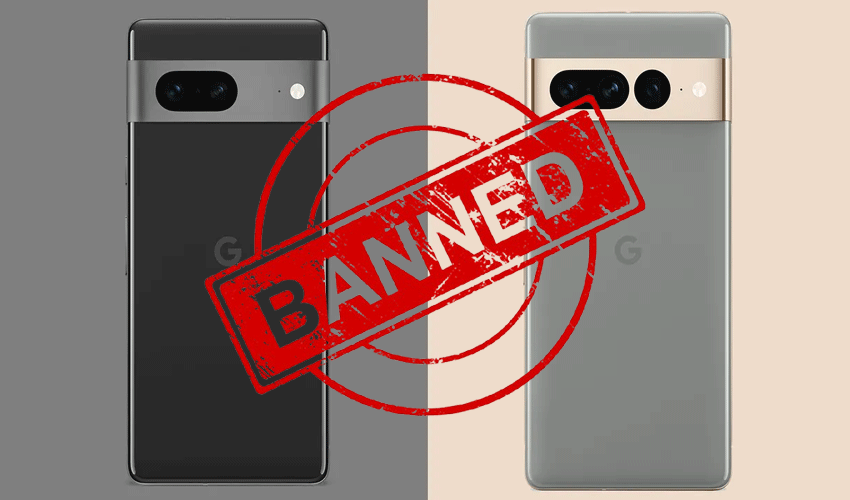Pixel 8 and 9 could be next as Pantech pursues fresh legal action

A Japanese court has ordered a sweeping ban on the sale and advertisement of Google’s Pixel 7 and Pixel 7 Pro smartphones after ruling that the devices infringe on a standard-essential patent owned by South Korean firm Pantech.
The Tokyo District Court found Google guilty of violating Japanese patent law by using a key 4G LTE communication technology without securing a license. The patent in question pertains to how smartphones communicate with cellular base stations using “acknowledgement signals” (ACK), which are crucial for maintaining stable connections in LTE networks.
The decision prohibits not only the sale of the Pixel 7 and 7 Pro in Japan, but also bans their import, transfer, marketing, and even public exhibition. The ruling comes as a significant blow to Google in one of its most promising international markets, where its Pixel line had been gaining steady ground.
Court criticises Google’s behaviour
In its ruling, the court also took issue with Google’s conduct during the legal proceedings. The judge described the company’s attitude as “insincere,” a criticism that reportedly influenced the severity of the court’s decision. Japanese legal culture places high value on transparency and cooperation in judicial matters, and Google’s failure to adequately respond to requests — including data on Pixel 7 sales — appears to have weighed heavily in the outcome.

Legal documents revealed that Google neither paid a reasonable royalty fee nor cooperated fully with court directives, contributing to the harsh ruling.
Pantech: A defunct brand turned patent enforcer
While Pantech has long exited the smartphone business, the company retains a portfolio of standard-essential patents (SEPs) related to wireless communication. In recent years, it has focused on monetising these through litigation, often with the help of IdeaHub — a firm that specialises in acquiring and enforcing valuable patents.

This case marks one of the most high-profile legal victories for Pantech’s IP strategy. The company has previously filed actions against global firms such as OnePlus, Niantic, and BLU. In some cases, settlements were reached, while others were decided in court.
More Pixel devices under threat
Although the current ruling only affects the Pixel 7 series, Pantech has already initiated further legal action targeting newer devices, including the Pixel 8 and the upcoming Pixel 9. Legal filings suggest the same LTE patent is central to these new cases.
If successful, the expanded ban could significantly impact Google’s operations in Japan. The Pixel 8 remains part of Google’s current flagship lineup, while the Pixel 9 is expected to anchor its next major product cycle.
Analysts warn that even the perception of instability around the Pixel brand could erode consumer trust and harm sales — regardless of whether a ban on newer devices materialises.
A key market at risk
Japan has become a critical market for Google’s smartphone business. According to Counterpoint Research, Pixel shipments in Japan briefly outpaced those in the United States during Q1 of 2023. Strong local reception of the Pixel 7 and mid-range Pixel 7a helped Google overtake Samsung to become the country’s second-largest smartphone brand, trailing only Apple.
This sales momentum is now under threat, and the implications could extend beyond the Japanese market if similar actions are pursued in other jurisdictions.
Dormant patents creating fresh challenges
The Google-Pantech case reflects a broader industry trend, where companies no longer active in hardware development are turning to patent enforcement as a revenue stream. Standard-essential patents, which are crucial for interoperability in technologies such as LTE, are expected to be licensed under FRAND (Fair, Reasonable, and Non-Discriminatory) terms. However, disputes often arise when licensing terms are not agreed upon or licensing is bypassed altogether.
Legal experts note that this approach, while controversial, is becoming more common as tech firms face increased scrutiny over their use of legacy technologies.
